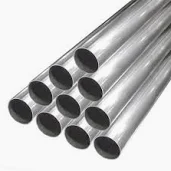When it comes to the material used for hydraulic cylinder tubes, the choice is critical for ensuring the efficient and reliable operation of the hydraulic system. The hydraulic cylinder tube is a key component that must withstand high pressures, temperatures, and other demanding conditions, while also maintaining its structural integrity and durability.
One of the most commonly used materials for hydraulic cylinder tubes is steel. Steel is a strong and durable material that can withstand high pressures and temperatures without deforming or rupturing. It is also relatively inexpensive and widely available, making it a popular choice for many hydraulic cylinder applications.
There are several types of steel that can be used for hydraulic cylinder tubes, including carbon steel, stainless steel, and alloy steel. Carbon steel is a common choice due to its strength and affordability. However, it may not provide the best corrosion resistance in some environments. Stainless steel, on the other hand, is highly resistant to corrosion and can be used in more demanding applications where exposure to chemicals or other corrosive agents is a concern. Alloy steel combines the strength of carbon steel with additional alloys that provide enhanced properties, such as improved corrosion resistance or increased toughness.
Hydraulic Cylinder Seamless Steel Tube

In addition to steel, there are also other materials that can be used for hydraulic cylinder tubes. Aluminum, for example, is a lightweight material that offers good corrosion resistance and is easy to machine and fabricate. However, aluminum may not be as strong as steel and may not be suitable for high-pressure applications. Copper and brass are other materials that can be used in some hydraulic cylinder tubes, although they are less common due to their higher cost and limited strength compared to steel.
When selecting the material for hydraulic cylinder tubes, it is important to consider the specific requirements of the application. Factors such as operating pressure, temperature, corrosion resistance, weight, and cost must be taken into account. For example, in high-pressure applications, steel may be the best choice due to its strength and durability. In corrosive environments, stainless steel or aluminum may be more suitable. Additionally, the material's machinability and weldability should also be considered, as these factors can affect the ease and cost of fabrication and repair.
It is also important to note that the material selected for the hydraulic cylinder tube must be compatible with the hydraulic fluid being used. Some materials may react negatively with certain fluids, leading to corrosion, degradation, or other problems that can affect the performance and reliability of the hydraulic system. Therefore, it is essential to consult with hydraulic system manufacturers or experts to ensure compatibility between the tube material and the hydraulic fluid.
In conclusion, the material used for hydraulic cylinder tubes plays a crucial role in the performance and reliability of the hydraulic system. Steel, aluminum, copper, and other materials can be used, depending on the specific requirements of the application. When selecting the appropriate material, it is important to consider factors such as operating pressure, temperature, corrosion resistance, weight, cost, machinability, weldability, and compatibility with the hydraulic fluid. By carefully evaluating these factors and consulting with experts, the most suitable material can be chosen to ensure optimal performance and reliability of the hydraulic cylinder system.












